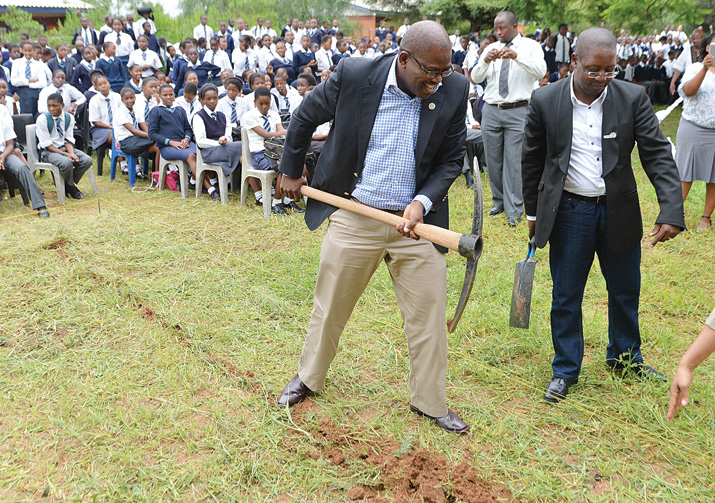The construction of the dry port that Botswana was offered to construct in Walvis Bay, Namibia is four months behind schedule. In response to a questionnaire from Gazette Business, Acting Public Relations Manager at the Botswana Railways, Kebabonye Morewagae indicated that the project was started on the 4th March, 2013 and is expected to be complete by end of May 2014. If completed in May, that would be four months after the initial set date for completion.
“The infrastructural development is at around 60 per cent complete, as follows; earthworks and paving at 60 per cent, buildings are at 50 per cent, palisade concrete perimeter fencing is at 92 per cent,” Morewagae said in the response.
He said that opening of the port was mainly delayed by; the issuing of the EIA approvals for operation, the bonding of the facility as a Dry Port, and the delay in commencement of the buildings constructions.
Quizzed on the purpose and benefit of the project to Botswana in particular, he said “the port is meant to facilitate trade in terms of exports and imports goods with overseas markets as well as in the greater SADC region.”
Manager of Corporate Communications at NamPort, Liz Sibindi was quoted in a Namibian publication, The Namibian a fortnight ago as saying that the port will “in turn increase the volumes that are carried on the corridors. It’s a way of promoting trade relations within the Southern African Development Community thereby making NamPort the preferred gateway. The long term goal is to establish a cargo clearing one-stop facility at the dry ports for efficient customs clearance and border crossing.”
The publication reports that the Namibian government offered its landlocked neighbours to set up dry port facilities at Walvis Bay, a couple of years back but only the Zambian facility is operational, while Zimbabwe is yet to develop its facility. “The responsibility is with the respective governments to develop their facilities hence NamPort would not want to speculate on the reasons for delays,” Sibindi was quoted.

